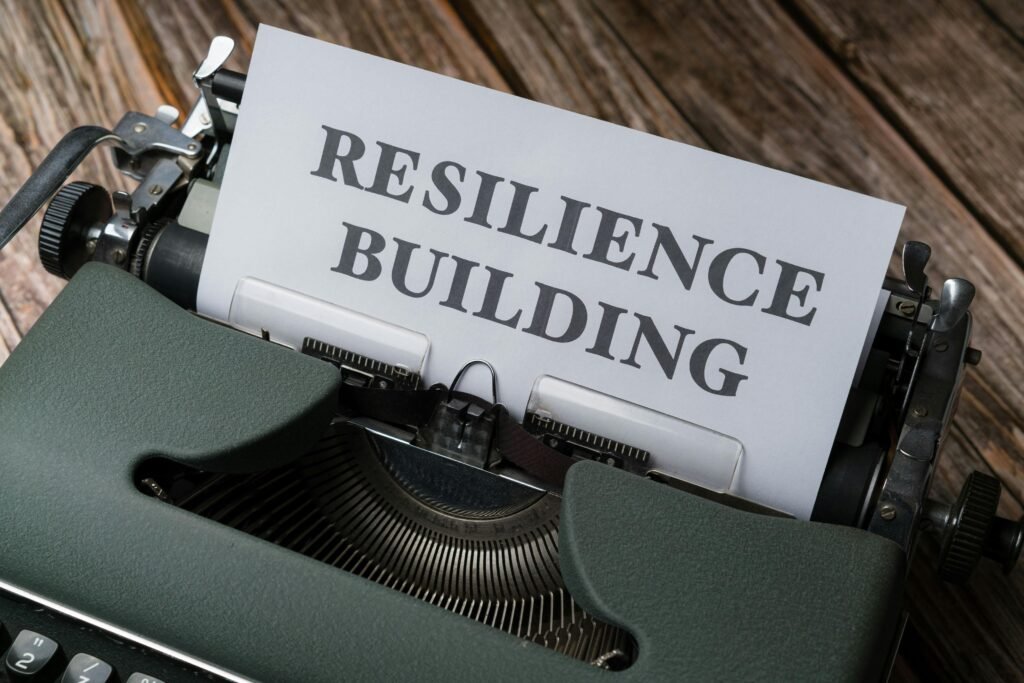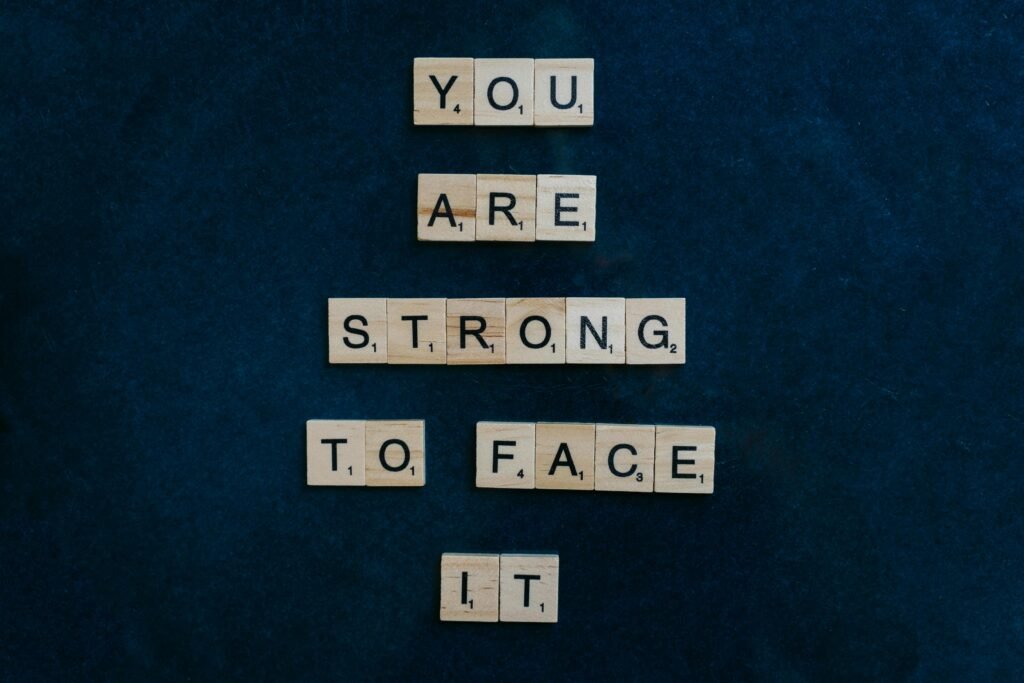
Introduction to Resilience Mindset
Life is unpredictable, and challenges are inevitable.
But what sets people apart is their ability to adapt, persevere, and find ways to grow stronger through those difficult moments.
This capacity to move forward with determination and purpose often stems from developing a resilience mindset.
Far from being a trait you’re either born with or not, resilience is a skill that anyone can learn and refine.
A resilience mindset is not about ignoring problems or pretending everything is fine.
Instead, it’s about equipping yourself to face struggles with clarity, courage, and a focus on solutions.
This mindset involves viewing setbacks not as permanent failures but as opportunities for growth and learning.
It doesn’t mean challenges become easy; rather, it’s about building the strength to handle them effectively without being overwhelmed.
One of the cornerstones of this mindset is self-awareness.
Recognizing your emotions and reactions in tough situations helps you respond more thoughtfully instead of reacting impulsively.
For example, when you’re dealing with unexpected changes at work or personal setbacks, taking a moment to assess the situation before responding can give you the clarity needed to make better decisions.
This level of awareness also allows you to identify patterns that may hold you back, so you can take steps to overcome them.
Flexibility is another key component of resilience.
Life rarely goes according to plan, and being willing to adjust your approach as circumstances change can prevent feelings of defeat.
Whether it’s a missed opportunity or a conflict in your personal life, focusing on what you can control and adapting to what you can’t allows you to keep moving forward.
Additionally, having a proactive attitude is essential. Instead of waiting for the “right” time to take action, a resilience mindset encourages you to tackle challenges head on, even when they seem intimidating.
For instance, if you’re facing financial difficulties, seeking guidance, learning new skills, or exploring creative solutions can help you regain a sense of control and progress.
Resilience doesn’t mean avoiding pain or hardship; it’s about finding ways to grow through them.
When you cultivate this mindset, you open the door to building a life where obstacles become stepping stones to greater strength and self-discovery.
Understanding Resilience Mindset

A resilience mindset is about more than just staying positive during tough times; it’s a way of thinking that equips you to face life’s difficulties with purpose and adaptability.
It focuses on using inner resources like hope, optimism, and self-compassion to navigate adversity effectively.
These elements are not just feel-good concepts; they are scientifically linked to improved mental health and better coping strategies during stress Research indicates that people who see life as comprehensible and manageable tend to maintain better psychological well-being during stressful times, such as the COVID-19 pandemic.
What makes this mindset unique is its emphasis on viewing challenges as manageable rather than overwhelming.
Instead of focusing solely on what’s going wrong, a resilience mindset encourages you to evaluate what you can control, even in difficult situations.
This doesn’t mean minimizing problems but rather seeing them through a lens of possibility and growth.
Maintaining self-compassion is another vital aspect, helping you avoid self-criticism during setbacks and instead encouraging you to treat yourself with the same kindness you’d extend to a friend.
Optimism also plays a significant role in this mindset.
It’s not about ignoring negative realities but believing that even when things are hard, improvement is possible.
Studies suggest that optimism helps sustain a more balanced perspective and reduces the likelihood of becoming overwhelmed during challenges (studies support this connection).
Another key component is emotional regulation, which involves recognizing and managing your emotions effectively.
Research highlights the importance of techniques like reframing stressful thoughts and focusing on problem solving, both of which align with resilience.
Instead of reacting impulsively, taking time to evaluate your emotions and decisions can help you move forward more constructively.
In practice, developing a resilience mindset means building these skills over time and integrating them into your daily life.
Whether through learning to adjust expectations, finding hope in small victories, or treating yourself with compassion, each step strengthens your ability to handle adversity.
It’s this combination of optimism, self-compassion, and practical problem solving that makes resilience a critical tool for thriving, no matter what challenges arise.
Developing a Resilience Mindset

Developing a resilience mindset requires consistent effort and the use of specific strategies that strengthen your ability to handle life’s challenges.
One of the most effective tools is cognitive reappraisal, a technique that involves reinterpreting negative situations in a more constructive way.
This method helps reduce the emotional impact of stress and fosters a greater sense of control in your daily life (as research has shown).
For example, rather than focusing on the frustration of an unexpected delay, you might view it as an opportunity to practice patience or catch up on a personal task.
Another critical aspect of resilience is learning to embrace change as a natural part of life.
Accepting that change is inevitable allows you to adapt more quickly when faced with uncertainty or unexpected situations.
This doesn’t mean giving up control but rather focusing on how you can adjust your approach while maintaining forward momentum.
Personal competence also plays a major role here, helping you build confidence in your ability to navigate through tough times (research highlights these benefits).
Practical exercises such as mindfulness and journaling are especially effective for building resilience.
Mindfulness helps you stay grounded in the present moment, reducing feelings of being overwhelmed by focusing on what you can manage right now.
Journaling, on the other hand, gives you a space to process your emotions and identify patterns in your thinking that may be holding you back.
Together, these practices encourage a more thoughtful and intentional approach to challenges.
Setting realistic, actionable goals is another strategy that supports the development of resilience.
Breaking large challenges into smaller, manageable steps helps prevent feelings of helplessness and allows you to track your progress over time.
Every step you take reinforces your ability to overcome obstacles, giving you the confidence to tackle future difficulties.
Finally, resilience isn’t just about handling external challenges; it’s about nurturing yourself from within.
Making time for activities that recharge you physically, mentally, and emotionally builds a stronger foundation for coping with stress.
As you engage in these practices, resilience becomes less about reacting to life’s difficulties and more about proactively strengthening your ability to face them.
Strengthening Your Resilience

Building resilience is not about simply enduring challenges; it’s about actively incorporating habits and routines that strengthen your ability to face difficulties.
Regular physical activity is one of the most effective ways to support resilience, as it plays a key role in reducing the impact of chronic stress on mental health (as evidenced by research findings).
Exercise not only improves your mood but also enhances cognitive function, helping you approach problems with greater clarity.
Another significant factor in strengthening resilience is cultivating strong, supportive relationships.
Surrounding yourself with people who provide encouragement, understanding, and honest feedback can make a world of difference during tough times.
Research shows that having a solid support system helps mitigate the emotional toll of stressors (studies confirm this connection).
Whether it’s a trusted friend, family member, or mentor, these connections remind you that you’re not alone in your struggles.
Self-care is another cornerstone of resilience.
Prioritizing activities that recharge you physically and emotionally allows you to manage stress more effectively.
This might include getting sufficient sleep, eating nourishing foods, or setting aside time for hobbies that bring you joy.
These practices help replenish your energy, giving you the strength to address challenges more constructively.
In addition to physical and emotional care, strengthening resilience often involves actively training your mind to manage stress more effectively.
Practices like meditation, deep breathing, and mindfulness techniques can help calm your mind and enhance your focus.
These methods equip you to face difficulties with greater composure, even when the situation feels overwhelming.
Another way to build resilience is by creating boundaries that protect your time and energy.
This involves learning to say no when necessary and recognizing when certain commitments may add undue stress.
Setting limits allows you to focus on what matters most and ensures you have the capacity to handle what life throws at you.
By integrating these strategies into your daily life, you develop the tools and inner resources needed to face obstacles head-on while maintaining your well being.
Real-Life Examples of Resilience

Resilience can be seen in countless real life situations where individuals have faced adversity and emerged stronger.
For example, research on adolescents shows that having a sense of life meaning can help counteract the harmful effects of bullying, leading to greater satisfaction in life.
This demonstrates how finding purpose can be a key factor in building resilience during challenging times (a study underscores this finding).
Another example comes from adults who navigate significant career setbacks, such as job loss or workplace conflict.
Instead of being consumed by stress or uncertainty, resilient individuals focus on identifying their transferable skills, seeking opportunities to grow, and staying connected with professional networks.
This proactive approach often leads to unexpected opportunities, showing the power of adaptability and resourcefulness.
Similarly, consider the resilience demonstrated by those facing serious health challenges, such as chronic illnesses or recovering from injuries.
These individuals often learn to adjust their routines, lean on their support systems, and celebrate small wins, allowing them to maintain hope and perseverance through ongoing struggles.
Their ability to reframe challenges as part of their journey helps them sustain their emotional well being and physical progress.
Communities also provide powerful examples of resilience, particularly during times of collective hardship like natural disasters or public health crises.
In these situations, neighbors often come together, sharing resources and supporting each other emotionally and practically.
This sense of collective purpose reinforces the importance of social connection in overcoming adversity.
Resilience is equally evident in personal relationships.
For instance, individuals navigating the emotional pain of loss or separation often draw on their inner strength to heal and move forward.
They may channel their energy into meaningful activities, seek counseling, or rely on trusted friends and family for encouragement.
Over time, these efforts allow them to rebuild their sense of stability and hope for the future.
Across these examples, it’s clear that resilience is not limited to a specific set of circumstances or individuals.
It can be developed and strengthened by anyone willing to face challenges with intention, determination, and support.
Common Obstacles and How to Address Them

Developing a resilience mindset comes with its share of challenges, and understanding these obstacles can help you address them more effectively.
One significant hurdle is the lack of a supportive environment.
Without encouragement or someone to lean on during tough times, it’s easy to feel isolated.
To overcome this, seek out connections with people who inspire and uplift you.
Whether it’s a mentor, a close friend, or a support group, surrounding yourself with positivity can provide the strength you need to keep going.
Another common obstacle is overwhelming stress, which can leave you feeling paralyzed and unable to take action.
Stress can cloud judgment and make even small challenges seem unmanageable.
One way to combat this is by breaking problems into smaller, actionable steps.
Tackling one piece at a time not only reduces the sense of overwhelm but also gives you a sense of progress, helping to build confidence in your ability to handle challenges.
Self-doubt is another barrier that often prevents people from cultivating resilience.
It can manifest as second guessing your choices or feeling unworthy of success.
To address this, practice self compassion by reminding yourself that setbacks are a normal part of life and don’t define your worth.
Replacing harsh self-criticism with kinder, more constructive thoughts can create the mental space needed to grow and learn from difficult experiences.
In some cases, resilience can also be impacted by external factors, such as a toxic work environment.
For instance, individuals with high resilience tend to experience less emotional harm from workplace bullying, highlighting the importance of strengthening your mental and emotional defenses (a study highlights this finding).
When dealing with such environments, focus on what you can control; like setting boundaries, seeking external support, or identifying opportunities to move toward a healthier situation.
Finally, unrealistic expectations can make resilience seem out of reach.
Expecting yourself to “bounce back” immediately from every setback can lead to frustration.
Instead, focus on steady progress and celebrate small victories.
By acknowledging even minor improvements, you build momentum and reinforce your capacity to adapt and thrive.
Addressing these barriers takes time and effort, but each small step contributes to building a stronger, more resilient mindset.
Conclusion and Encouragement

Resilience isn’t about avoiding challenges or hardships; it’s about learning how to face them with strength, clarity, and determination.
It’s about recognizing that while difficulties are an inevitable part of life, your ability to navigate them can grow stronger with time and effort.
Every challenge you encounter is an opportunity to develop new skills, deepen your understanding of yourself, and discover what you’re truly capable of achieving.
The journey toward building resilience requires commitment, but the rewards are life changing.
It’s not about perfection or having all the answers; it’s about progress, however small.
Each time you choose to take a step forward; whether by rethinking a problem, reaching out for support, or simply giving yourself the grace to keep going, you are reinforcing your ability to rise above adversity.
The important thing is to focus on what you can do today to strengthen your foundation and prepare for whatever lies ahead.
As you continue to develop your resilience, remember to celebrate your victories, no matter how minor they may seem.
These small wins remind you of your growth and reinforce the belief that you can handle future challenges.
Be patient with yourself and recognize that setbacks are part of the process; they don’t define you.
What matters is how you respond, adapt, and continue moving forward.
Building resilience is not something you have to do alone.
Seek support from those who encourage and uplift you, and don’t hesitate to lean on your community when needed.
Strong connections remind you that you’re not navigating life’s difficulties in isolation.
At the same time, take moments to check in with yourself.
Nurture your physical, emotional, and mental well-being, as these are the foundation of your ability to face life’s demands with a steady mind and a strong heart.
You have the power to create a mindset that thrives on hope, adaptability, and purpose.
By practicing self-compassion, focusing on growth, and staying committed to your goals, you build resilience not just for today’s challenges but for the future as well.
Take pride in your progress, and know that every step you take is a step toward becoming the strongest version of yourself.
Resilience is a skill that grows with you; it’s built through persistence and nourished by the choices you make daily.
Start where you are, use the tools you’ve learned, and trust that you have what it takes to overcome obstacles.
You are stronger than you think, and with time and effort, you will continue to prove it to yourself.
Keep moving forward, you’ve got this.
